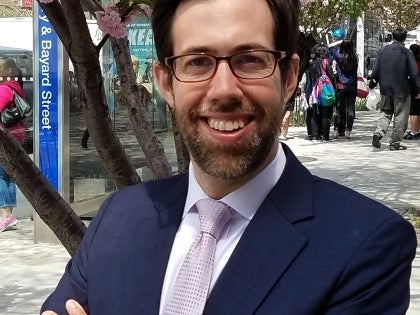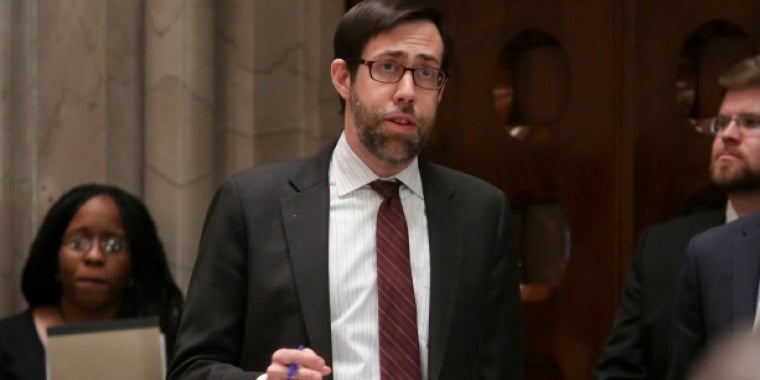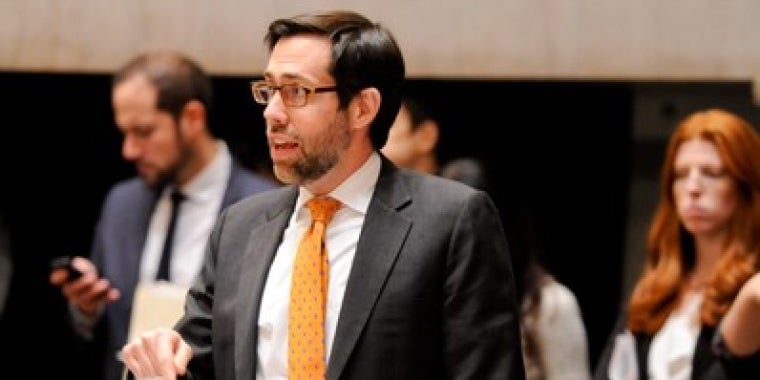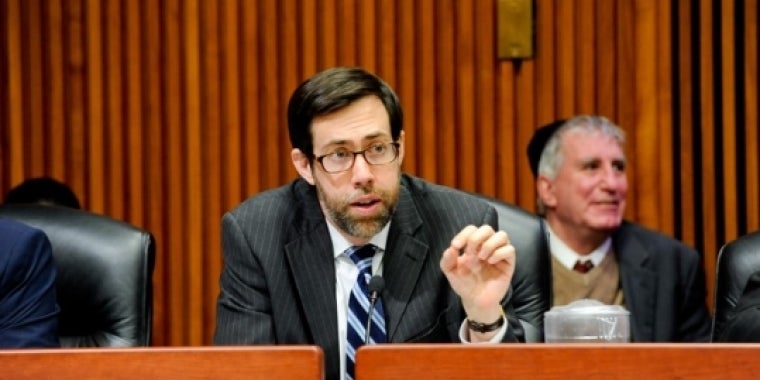
Filling ethics law gap
By James M. Odato
Feature article in the Times Union
ALBANY -- Sen. John Flanagan operates ASJ Consulting, but don't expect the Long Island lawyer to discuss the business.
He won't return phone calls inquiring about ethics disclosure requirements.
Like former Sen. Joseph L. Bruno, who claims he disclosed what he believed was necessary on state ethics forms, Flanagan, R-East Northport, is among 10 state lawmakers whose households benefit from consulting income.
The issue of disclosing clients of consultants is central to Bruno's criminal trial, which began this week. The Brunswick Republican and former majority leader took in at least $3.2 million outside his annual legislative salary of $121,000, much of it from consulting work that prosecutors say was improperly camouflaged.
The public never learned details about Bruno's outside income and or the work he did for companies that gained pension fund investments from labor unions with business before the state.
A bill pushed by Sen. John Sampson and Sen. Daniel Squadron would change the situation. The Democratic senators, along with good government groups, want consultant clients to be itemized on annual disclosure reports that, they say, are currently so weak the public cannot find out about potential conflicts of interest.
"With the trial of former Senate Majority Leader Joseph L. Bruno underway, a spotlight shines on the lax culture that has been the status quo in Albany for far too long," Squadron said in a news release Tuesday. "We have got to fill the huge gap -- the 'Bruno Gap' -- in our state's ethics law."
Besides Flanagan, others listing consulting income in 2008 include Sens. Eric Adams, D-Brooklyn, and Carl L. Marcellino, R-Syosset, and Assemblymen Thomas W. Alfano, R-Franklin Square, Robert D. Barra, R-Lynbrook, Joseph A. Errigo, Conesus, George S. Latimer, R-Mamaroneck; William D. Reilich, R-Rochester; and Louis R. Tobacco, R-Staten Island.
Anthony Seminario, D-Queens, is also on the list. He quit the Assembly and pleaded guilty to honest services fraud earlier this year for using his state position to drum up consulting clients.
Others say consulting is needed to augment modest incomes. Lawmakers make a base annual salary of $79,500.
"I believe we should be full-time legislators," said Adams. "Once the economy recovers, we should expect to pay legislators (for) the number of hours they (work). I'm a former patrolman, and I believe one of the way to keep out corruption is to pay an officer a suitable salary."
Adams is a real estate consultant. He said his clients are people who he trains on becoming first-time home-buyers. He would be willing to reveal them if required, he said.
James Featherstonhaugh, an Albany lobbyist and lawyer for 40 years, said he dislikes the way the federal government is trying to force changes in disclosure laws by attacking Bruno's activities.
The theory is he was hooking labor unions up in some way with the pension people, for which he received remuneration and the labor unions had business before the Legislature," Featherstonhaugh said. "I think that it is a very bad idea in a democracy to have prosecutors pushing social theory, and what this trial is about is whether we should have a full-time Legislature or continue to have a part-time Legislature. Absent some accusation of a quid pro quo, I think that's all it's about."
As the first witness for the prosecution, Featherstonhaugh said Tuesday most lawmakers have derived income from outside the Legislature. He said it is difficult to find any that would be involved in business activities that didn't intersect with legislative matters.
"Some legislators have voluntarily chosen to be full-time legislators," he told the court. "There aren't a whole lot of them."
Other lawmakers said they could live with identifying clients. Marcellino isn't a consultant, but his wife is. Patricia Marcellino's firm, C&P, is derived from the first initials of both Marcellinos, he said, but he is inactive.
He's willing to disclose their clients, and notes lawmakers and their spouses lose certain rights to privacy. "The business that I'm in is a public business so I have to take on that responsibility; so I don't have any problem with (disclosure)," he said.
Barra, a title insurance consultant for Becker Abstract, said he would disclose clients if required. Tobacco is a partner in Stat Profit and Recovery Consultants Inc., which specializes in bill collecting; he could not be reached. Nor could Latimer, a public relations consultant for Community Synagogue, and Alfano, a lawyer and vice president for Trinity Associates Adv. Ltd., financial consultants.
The Squadron-Sampson bill would also require public disclosure of income levels made by lawmakers, and increase the ranges that must be reported to $1 million or more. The ranges are reported now only to the Legislative Ethics Committee, which doesn't disclose the sums to the public.
Sen. Jeffrey Klein, D-Queens, also is advancing a bill to require the ranges to be upped. The maximum range to be reported now is $250,000. Klein's bill would not require public disclosure, but he said he would be for that.
The Assembly passed an ethics reform bill this summer that did not require as much disclosure as the Sampson-Squadron bill. The Senate did not act on the Assembly bill.



